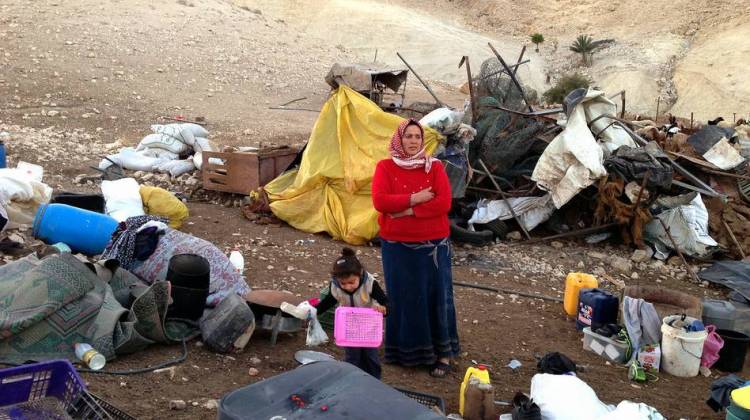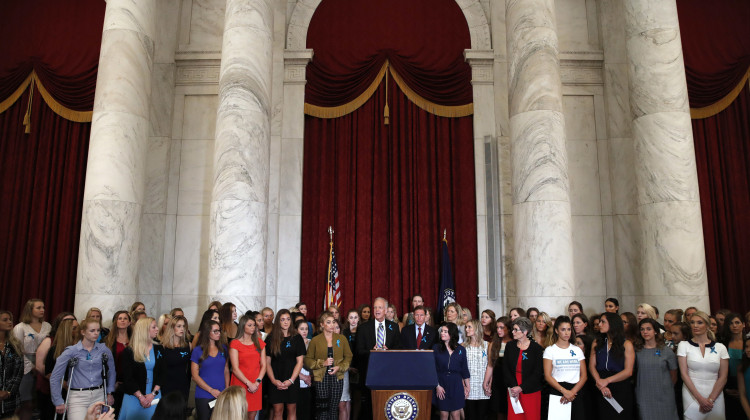NPR's Emily Harris sent this postcard after visiting a community of Palestinian herders whose camp was demolished for being in a closed Israeli military zone.
It's about 20 minutes by four-wheel drive up a rocky canyon to Khirbet 'Ein Karzaliyah, a near-barren plain with a small spring. A handful of families live here, including more than a dozen children and over 700 sheep and goats.
Meshchas Bne Menneh unzips the door to her home, a large tent on a sturdy square frame. She flicks on a battery-powered lamp and lights a propane burner for tea. Outside, children fill buckets of fresh milk.
This land is in an Israeli military zone and the herders have been struggling with Israeli authorities off and on for a decade. In December, an Israeli court rejected their petition to stay. Naheda Bne Mennehsays the women and children live in town part of the year, but this is home, because of the sheep.
"Our life is around the sheep; we have no other income source," she says. "This is our way of living."
Early the next morning, Israeli soldiers bulldozed the tents into tangled piles. Guy Inbar, spokesman for the Israeli administration in the West Bank, says the homes were put up without permits.
"All of them were removed after the high court of justice had denied their petition and after the end of the 30 days that were given for appeals," Inbar says.
But Matthias Behnke, the head of the UN High Commissioner for Human Rights office in the Palestinian territories says the legal process allowing home demolitions, in this case and more broadly [http://www.btselem.org/topic/area_c], supports the Israeli occupation of the West Bank.
"This is under Israeli law, which is adapted to allow for these proceedings," Behnke says. "Which we find problematic when you compare it to international law."
Meshchas said the Israeli military brought bulldozers up the valley between morning prayers and milking time.
Later that day, Meshchas said the military came early.
"We were trying to get our belongings out and dismantle our tent without really destroying it. They didn't allow us," she says.
As she talks, Meshchas keeps doing what she does everyday. She unwraps bundles of soft, fresh cheese, squeezes out extra water and wraps them up again. Belongings that weren't destroyed were arranged on a rug, much like the day before. Now there were just no walls and no roof.
By late afternoon, help had arrived. The International Committee of the Red Cross put up new tents. Herder Atteyah Bne Menneh says the community's lawyer advised setting up these new tents at least a hundred yards away from the old sites.
"Because if we build there they can destroy immediately, because they already have the order," he said. "Here it will take time, they will bring us the first paper, then the second, and our lawyer will also do something to buy time. And it could take two years."
Instead, it takes just four days until the military confiscated the Red Cross tents. The herder families spent that night under the stars, and they intend to stay in this valley.
9(MDEwMDc1MzM3MDEzNDczOTA0MDc1MzViMQ001))
 DONATE
DONATE








 View More Programs
View More Programs

 Support WFYI. We can't do it without you.
Support WFYI. We can't do it without you.